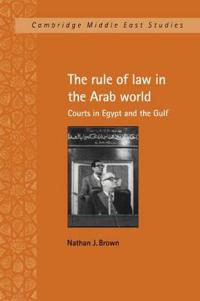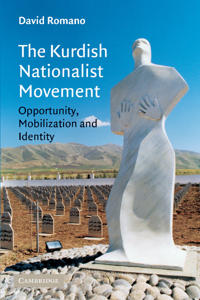Cambridge Middle East Studies (häftad)
ISBN: 9780521030687 - UTGIVEN: 2007-01Nathan Brown's penetrating account of the development and operation of the courts in the Arab world is based on fieldwork in Egypt and the Gulf. The book addresses several important questions. Why, for example, did Egypt's political leaders construct an independent judicial system that limited their[...]
The Kurdish Nationalist Movement (Häftad)
avCambridge Middle East Studies
ISBN: 9780521684262 - UTGIVEN: 200603David Romano's 2006 book focuses on the Kurdish case to try and make sense of ethnic nationalist resurgence generally. In a world rent by a growing number of such conflicts, the questions posed about why, how and when such challenges to the state are mounted are becoming increasingly urgent. Through[...]
Cambridge Middle East Studies (häftad)
ISBN: 9781108459938 - UTGIVEN: 2018-10In the wake of the Arab uprisings, al-Nahda voted to transform itself into a political party that would for the first time withdraw from a preaching project built around religious, social, and cultural activism. This turn to the political was not a Tunisian exception but reflects an urgent debate wi[...]
Cambridge Middle East Studies (häftad)
ISBN: 9781316641620 - UTGIVEN: 2018-09Since the US-led invasion and occupation of Iraq in 2003, the challenges of sectarianism and militarism have weighed heavily on the women of Iraq. In this book, Zahra Ali foregrounds a wide-range of interviews with a variety of women involved in women's rights activism, showing how everyday life and[...]
Cambridge Middle East Studies (häftad)
ISBN: 9781316644720 - UTGIVEN: 2018-08Successive authoritarian regimes have maintained tight control over organized labor in Egypt since the 1950s. And yet in 2009, a group of civil servants decided to exit the state-controlled Egyptian Trade Union Federation (ETUF), thereby setting a precedent for other groups and threatening the ETUF'[...]







